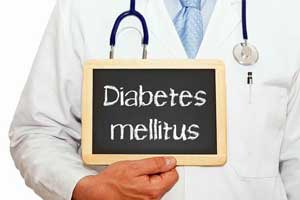- Home
- Editorial
- News
- Practice Guidelines
- Anesthesiology Guidelines
- Cancer Guidelines
- Cardiac Sciences Guidelines
- Critical Care Guidelines
- Dentistry Guidelines
- Dermatology Guidelines
- Diabetes and Endo Guidelines
- Diagnostics Guidelines
- ENT Guidelines
- Featured Practice Guidelines
- Gastroenterology Guidelines
- Geriatrics Guidelines
- Medicine Guidelines
- Nephrology Guidelines
- Neurosciences Guidelines
- Obs and Gynae Guidelines
- Ophthalmology Guidelines
- Orthopaedics Guidelines
- Paediatrics Guidelines
- Psychiatry Guidelines
- Pulmonology Guidelines
- Radiology Guidelines
- Surgery Guidelines
- Urology Guidelines
lixisenatide prevents kidney damage in diabetes with CVD

According to a post-hoc analysis of the Evaluation of Lixisenatide in Acute Coronary Syndrome (ELIXA) trial, injectable glucagon-like peptide (GLP-1) agonist lixisenatide may protect patients with type 2 Diabetes who have cardiovascular disease from developing kidney damage, although the effect is most pronounced in those who already have macroalbuminuria.
The new research was presented at the annual meeting of the European Association for the Study of Diabetes (EASD) and has been published simultaneously in The Lancet Diabetes & Endocrinology.
The study presented by Dr Marcel Muskiet, Amsterdam University Medical Centers, location VUMC, Amsterdam, and colleagues shows how the glucose-lowering drug lixisenatide can slow or prevent damage to the kidneys in macro-albuminuric patients with type 2 diabetes mellitus (T2DM) and cardiovascular disease.
In the ELIXA trial, lixisenatide, a short-acting glucagon-like peptide 1 receptor agonist (GLP-1RA), demonstrated cardiovascular safety versus placebo in T2 diabetes patients. In this follow-up study, the authors investigated the effect of lixisenatide on renal outcomes --T2DM patients with a recent coronary artery event were assigned to lixisenatide (10-20 μg) or placebo, on top of standard of care.
The secondary endpoint peper change in urinary albumin-to-creatinine ratio (UACR ) from baseline to Week 108 was modestly lower with lixisenatide vs. placebo (24% vs. 34%) in the overall population, as previously reported.
Here, in a partly pre-specified and partly exploratory analysis in the intention to treat (ITT) population of ELIXA, the authors investigated progression of UACR and the glomerular filtration rate (eGFR --a measure of kidney function) according to pre-specified baseline UACR categories (normoalbuminuria: UACR < 30 mg/g; microalbuminuria: UACR ?30 to ?300 mg/g; and macroalbuminuria: UACR >300 mg/g). Time to new onset macroalbuminuria and doubling of serum creatinine were also determined.
Between July 2010 and August 2013, 6068 patients were enrolled. Baseline UACRs were available in 5978 (99%) of patients with median follow-up time of 25 months. At baseline, 74% had normoalbuminuria, 19% microalbuminuria, and 7% macroalbuminuria. After 108 weeks, the difference in percentage reduction in UACR (lixisenatide vs. placebo) was -1·7% (non-statistically-significant) in patients with normoalbuminuria, -21·1% (borderline statistically significant) in patients with microalbuminuria and -39·2% (statistically significant) in patients with macroalbuminuria.
Furthermore, lixisenatide was associated with a borderline statistically significant 16% reduction in risk of incidence of macroalbuminuria. The eGFR declined throughout the study across all albuminuria categories, with the largest decrease in the macroalbuminuric subgroup. There were no significant differences in eGFR decline between treatment arms in the overall population or in UACR subgroups.
The findings indicate that the urinary creatinine-to-albumin ratio was significantly reduced by a 39% in patients with type 2 diabetes and macroalbuminuria who took lixisenatide compared with placebo, and a borderline significant 21% for the same comparison in those with microalbuminuria.
The authors conclude: "On the basis of available evidence, GLP-1RAs reduce UACR across the range of eGFR (CKD stages 1-4), particularly in patients with macroalbuminuria at baseline. It can be speculated that direct GLP-1 receptor activation in the kidney, or multiple anti-inflammatory and anti-oxidative stress effects, may contribute to the suggested renal benefits of GLP-1RAs. The effect of GLP-1RAs on eGFR decline and hard renal endpoints remains equivocal, and should be investigated in dedicated renal outcome studies with longer follow-up time in T2DM patients with more advanced CKD at baseline."

Disclaimer: This site is primarily intended for healthcare professionals. Any content/information on this website does not replace the advice of medical and/or health professionals and should not be construed as medical/diagnostic advice/endorsement or prescription. Use of this site is subject to our terms of use, privacy policy, advertisement policy. © 2020 Minerva Medical Treatment Pvt Ltd